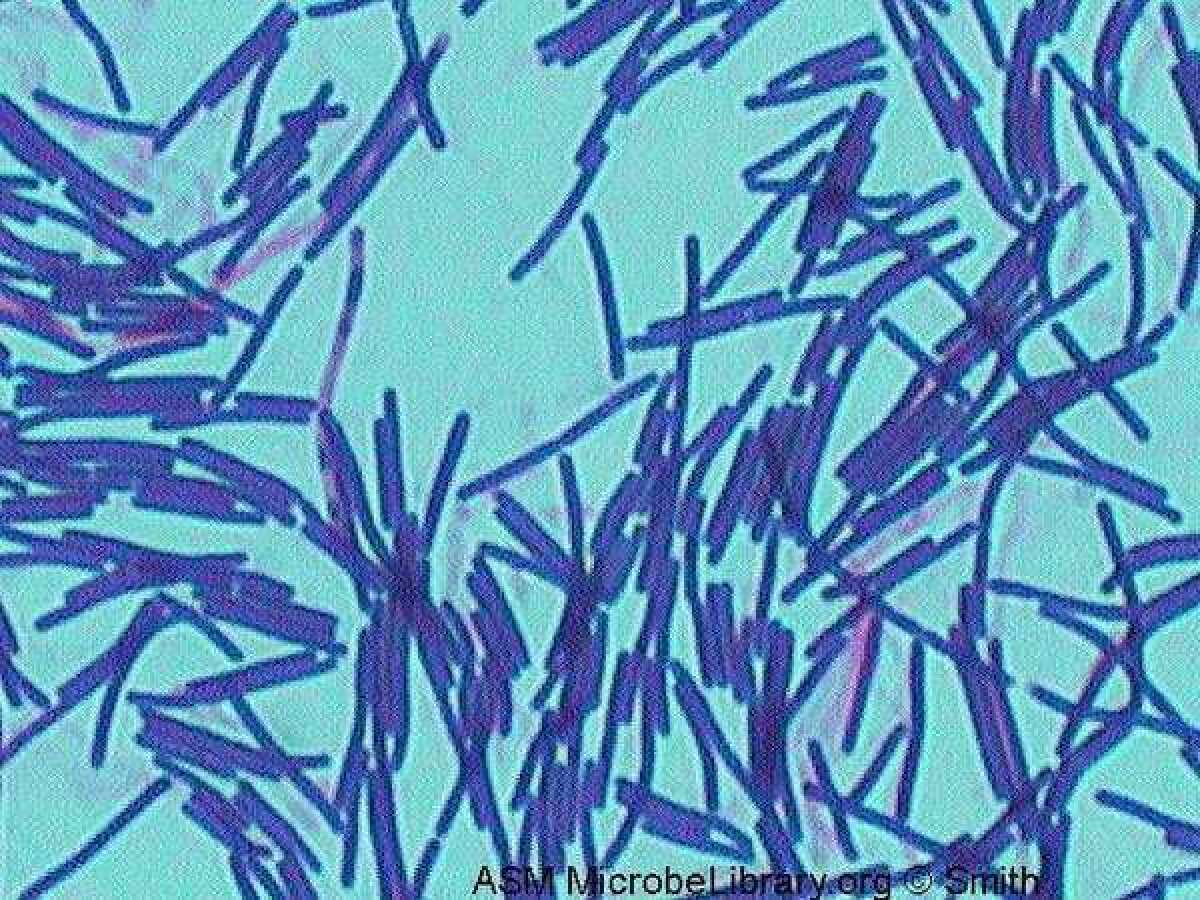Biotech bacteria might help soothe Crohn’s and colitis

- Share via
Inflammatory bowel disease -- a range of conditions including Crohn’s disease and ulcerative colitis -- afflicts an estimated 1.4 million Americans. Now some scientists in France have come up with a novel potential therapy: an enzyme that calms down the gut delivered via a genetically engineered bacterium.
The approach -- tested so far only on mice and pieces of inflamed human gut tissue in the lab -- was reported in a paper in this week’s Science Translational Medicine.
Crohn’s and ulcerative colitis, which range in severity and can be chronic or recurring, develop when parts of the body’s immune system turn traitor and -- for poorly understood reasons -- start attacking the gut. Symptoms include diarrhea, cramping, weight loss, ulcers and intestinal scarring. There is a raised risk of colon cancer and, especially in the case of Crohn’s, surgery may be required at some point. Drugs used to treat it aren’t ideal: They don’t work for everyone and sometimes have nasty side effects.
Authors of this new paper set out to try something different. They noted that among the many changes that occur in the gut with IBD, levels of a protein called elafin tend to fall. Elafin inhibits certain enzymes that contribute to inflammation. So, the scientists reasoned, what would happen if you supplied extra elafin to patients with IBD?
In an earlier paper, the team had shown that it could genetically engineer a mouse to make elafin and that it would be protected against a colitis -like condition that can be induced to occur in mice. But it hardly seems practical to try to genetically engineer people’s guts. In this paper, the scientists instead spliced a gene that carries instructions for making elafin into two strains of probiotic lactic acid bacteria that are known to be safe in people. Then they fed mice the bacteria.
What happened? First of all, elafin was now steadily made in the guts of the mice. When IBD was induced in the mice, those fed the genetically modified bacteria were more resistant to the disease. The gut tissue wasn’t as thick, cell damage was lessened and there was reduced invasion of the gut by immune cells such as macrophages and neutrophils.
Mice fed only the probiotic bacteria -- no elafin gene -- exhibited some chemical signs of improvement, but not as many as those fed the engineered bacteria.
The scientists also saw improvements in bits of human gut that were inflamed after being bathed with fluid from the guts of people with Crohn’s.
They note that while all this is promising, and while elafin has been shown to not cause harm when given to patients, there would have to be safety tests on the recombinant strategy as well as refinement on the best bacteria used to shuttle the drug to the gut.
This isn’t the first time scientists have tried to engineer bacteria to fight IBD. In earlier experiments, bacteria were engineered to make an antiinflammatory drug, interleukin 10. This whole field was reviewed not so long ago in the journal Trends in Biotechnology (but you’ll have to cough up some money to read the entire article).
For more information about inflammatory bowel disease, take a look at this information from WebMD, the Centers for Disease Control and Prevention, the National Institute of Diabetes and Digestive and Kidney Diseases and the Crohn’s and Colitis Foundation of America.
Read our science blog at latimes.com/sciencenow and our health blog at latimes.com/boostershots.
Follow me on twitter: @LATRosie



